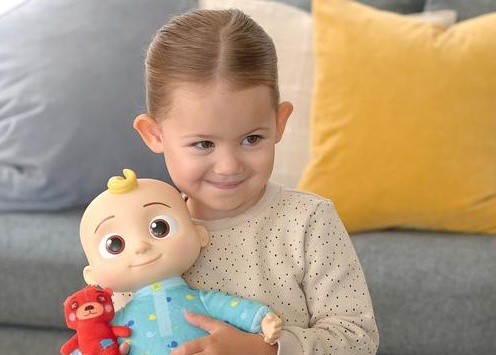
Within the toy industry, dolls have arguably played the largest role in social skill development than any other category of toys. From lifesize baby dolls to miniature figurines, what makes these products so valuable when learning about human interaction? Come explore some of the top reasons humans rely on dolls to help us connect to others.
Early Dolls
Dating back to ancient Egypt as well as the early days of the Japanese culture, dolls are the oldest known toy. These earlier dolls were primarily built out of wood or whatever materials were readily available and were carved or assembled to resemble the shape of a human being. Many were also painted and the Greeks introduced the idea of articulated arms and legs to add more likeness. Roman dolls have even been discovered wearing fashionable clothing for the era.
The predecessors to today’s dolls are thought to have served multiple purposes, including warding off danger, completing a religious ritual, and bringing comfort to both children and the deceased. Although their size, coloring, design, and purpose may vary from culture to culture, situation to situation, and year to year, there is no denying dolls have been a staple teaching tool that has been used across the globe to further the development of the community throughout most, if not all, of human’s existence
Role Play Aids
The most immediate image that may come to mind when speaking about dolls is that of a young child using a favorite doll to play house or create a mock social experiment to see what happens when specific learned behaviors, emotions, and words are used. By projecting emotional responses onto the doll, children can play out their own live-action scenes in the comfort of their homes. By practicing such responses for the dolls, children can discover if that behavior elicits a positive or negative reaction. Children can then apply what they have learned to their own interactions with family, friends, and the community around them.
Emotional Exploration Aids
In fact, dolls are so vital to the role-play process that they are often used in therapy sessions with children as a way to express how that child is feeling or teach emotional cues to children who are struggling with social interaction. During the session, children can recreate a situation from memory that took place at home or at school. Also, a therapist can ask questions that the child can answer through play or the therapist could craft a storyline the child can continue to explore through play. The magic behind role-playing with dolls lies in the child being able to explain his or her version of the story through play and, since the dolls are going through the challenging event and not the child, there is less fear of being criticized, judged, ridiculed, or punished. Children feel freer to explore their feelings and their anxiety triggers while expanding their ability to change the narrative in their minds.
Memory Aids
Children and those individuals who are having a difficult time interacting with others are not the only ones who can use dolls to develop or cultivate social skills. Alzheimer’s patients often hold or play with dolls to feel connected socially. Dolls have been found to help such individuals recall a time when either their children were babies or they themselves were young children. Also, by taking care of their dolls, the patients are able to practice engaging others through role-play activities.
A Bridge for Generations
Another vital social function dolls offer is the ability to serve as a conversation starter that brings friends as well as multiple generations together. Grandparents and great-grandparents appreciate the loving memories they had as children or while watching their children play. They also can teach the younger generations about the evolution of the doll throughout their lifetime and how easy or difficult it was to purchase the trending dolls of their day. Meanwhile, children develop meaningful moments with their parents, grandparents, and great-grandparents as they select a new doll in a store, listen to the stories about how dolls have changed, or discover what made a specific doll special to their loved ones.
How Retailers Find Trending Dolls to Sell
Tradeshows, media productions, and other forms of research help retailers stay current with doll creation and sales trends. But, they also have a powerful resource with License 2 Play as a manufacturer and wholesaler that produces a large selection of the top-selling toys every year. By purchasing their inventory of dolls and other toy items from us, retailers can be confident they are stocking their shelves with products that sell fast and produce loyal customers who will come back again and again to buy additional trending toys. If you are a retail store owner and you would like to register your business to begin buying from License 2 Play directly, visit our registration page to learn how easy it is to get started!
